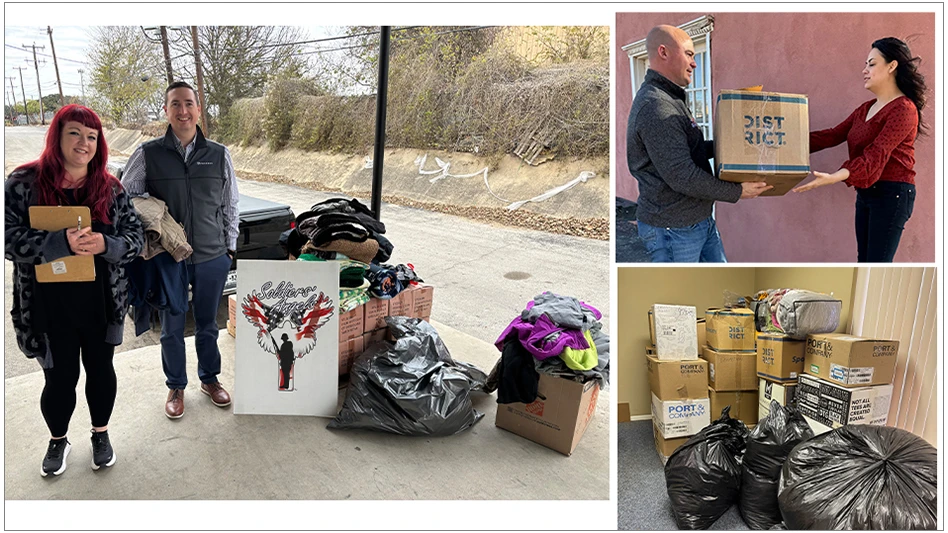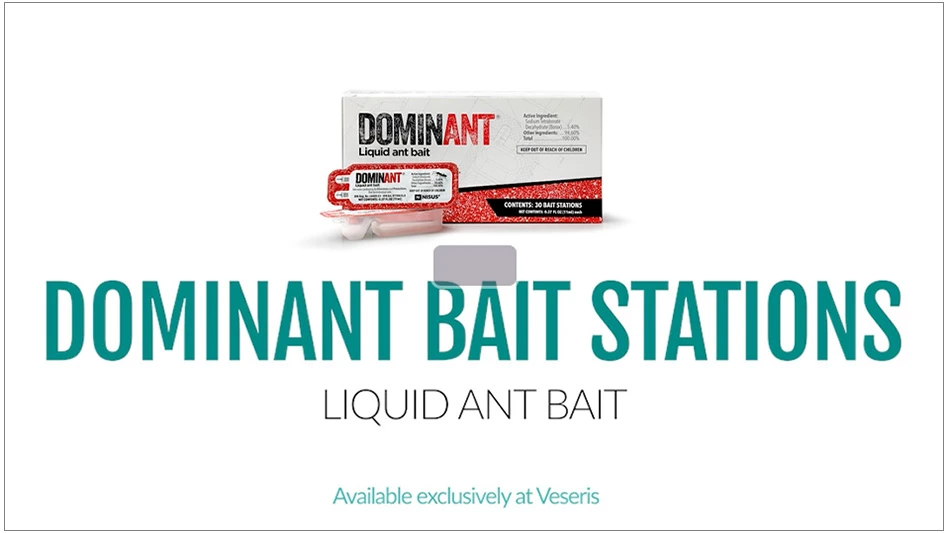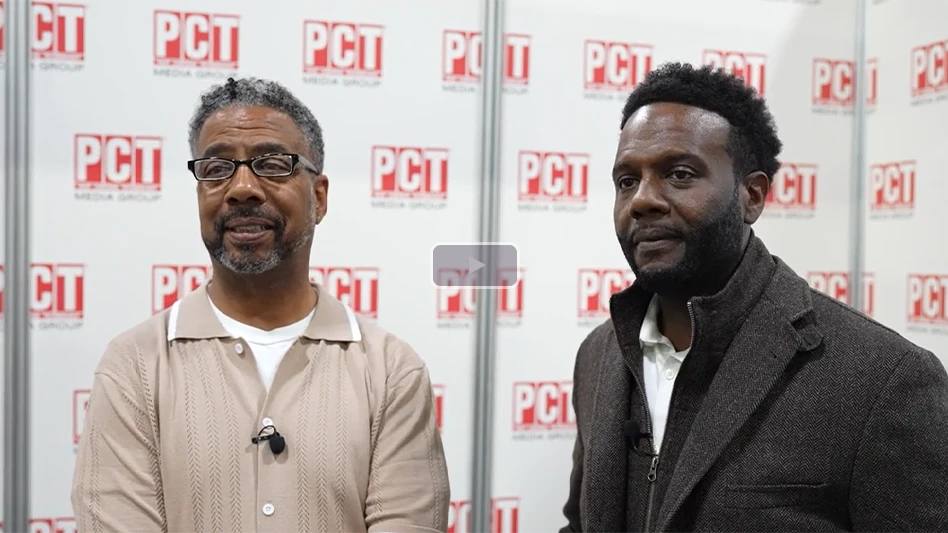The future of one of the nation’s largest pest control companies is in doubt as Sears executives evaluate their "strategic options."
The lights are flickering at Sears HomeCentral® amid rumors that the country’s third largest pest control company — Sears Termite & Pest Control — is in trouble. The first hint of problems at the Orlando-based company became apparent when Bob Case, a 21-year veteran of Sears Roebuck & Co., stepped down as president late last year.
Then, following disappointing fourth-quarter sales that left many major retailers in a post-holiday funk, Sears announced it was closing 89 stores, eliminating 2,400 jobs, and, according to a copyrighted story in the St. Petersburg Times, "getting out of the pest control business."
That was shocking news for many in the industry who have watched Sears Termite & Pest Control grow from a successful Florida company into a powerful regional force, first under the direction of company founder Chuck Steinmetz, who sold All America Termite & Pest Control to the retail giant in 1997, and later under the leadership of Bob Case.
Case, who held the top spot at the $100-million company for three years, said Sears planned to grow the business "exponentially" by bundling the com-pany’s growing line of home improvement services (i.e., carpet cleaning, security systems, window installation, etc.) and leveraging the Sears name, which commands "tremendous trust" among consumers.
However, as other major players in the pest control market have learned, "bundling" consumer services to grow the bottom line is often easier said than done. As a result, Sears Termite & Pest Control’s operating performance in 2000 was "disappointing," according to Sears spokesman Ted McDougal, prompting the company to take a hard look at its pest control operation, as well as other under-performing segments of its multi-billion-dollar business.
Faced with slumping retail sales and a looming economic slowdown, Sears Chairman and Chief Executive Officer Alan Lacy announced in early January that the company was taking a one-time pretax charge of $115 million relating to Sears Termite & Pest Control, citing continuing losses.
While not going into specifics, the newly appointed Sears Chairman acknowledged that Sears is "evaluating its strategic options" and committed to doing "fewer things better." As part of that process, Sears is thoroughly evaluating and, in some cases, eliminating businesses that are not core to its retail strategy. In fact, of the 89 retail outlets being closed, only four are full-line department stores. The rest are Sears Hardware stores and National Tire and Battery outlets.
CAUSE FOR CONCERN? What does all this mean for the pest control industry? Doing fewer things better means all Sears businesses will be evaluated, including Sears Home Improvement Services, of which Sears Termite & Pest Control is a part. "What the specific components of that (evaluation process) are I don’t know," McDougal said. "I don’t have a specific list of options," but the company is interested in making its pest control business "operate better."
Chuck Steinmetz, the architect of Sears Termite & Pest Control who was reached by PCT magazine while on vacation in Colorado, said he didn’t know what prompted the apparent shift in Sears’ commitment to the pest control market, but he heard its business had "declined substantially. I haven’t been down there since I left. And I haven’t had any phone calls from them, so I really don’t know very much except what I read in the paper.
"Originally their idea was to move into all different kinds of home services and I don’t know if that has worked out as profitably as they had planned," he said, "so what they’re going to do I don’t know."
Apparently, Sears management isn’t so sure either, at least until its strategic assessment is complete. "We’re evaluating all options," McDougal said. "The overall management of the company and the business in which the termite and pest control is housed has changed since the time it was acquired. I would say the original projections were really optimistic.
"It’s a competitive business," McDougal added. "We had a pretty significant job ahead of us in terms of integrating systems. A couple of different pest control companies were acquired and we experienced some growing pains. Getting everything aligned was a little more complicated than anticipated."
Some industry observers say Sears’ highly regarded once-a-year pest control service — an effective sales and marketing tool early in the company’s development — fails to develop the customer intimacy essential for the success of a pest control business.
In order to develop a long-term relationship with your clients, "you have to have repetitive contact with the customer," says one longtime Florida pest management professional familiar with the Sears operation. "You don’t necessarily have to use pesticides, but you have to develop a close relationship with your customers. It’s like a social call. Sears, as mighty as they are, didn’t have that kind of relationship."
However, McDougal says the com-pany’s once-a-year pest control service isn’t the problem. "That remains a popular feature. It’s simply an intensely competitive industry."
"The business always worked on the basis of about half of the yearly customers would renew the first year, but then after that 80 percent would renew from then on and it always worked like that," Steinmetz said. "And we were always able to grow the renewal base, so that was never a real problem."
Regardless of what’s at the root of Sears Termite & Pest Control’s current problems, the future of the company is clearly in doubt, leaving Steinmetz and other longtime industry observers scratching their head. "I don’t know what happened," Steinmetz said. "Sears had the greatest aspirations for pest control and they were willing to put in the resources. Why it hasn’t turned out as projected, I really don’t know."
The authors are publisher and managing editor, respectively, of Pest Control Technology magazine. They can be reached at dmoreland@pctonline.com; bharbison@pctonline.com
Sears Through The Years
1982
Chuck Steinmetz establishes All America Termite & Pest Control in Orlando, Fla., becoming an authorized Sears supplier of structural pest control service.
1983
Steinmetz’s innovative once-a-year pest management service resonates with the public, attracting thousands of new customers.
1989
Steinmetz’s innovative once-a-year pest management service resonates with the public, attracting thousands of new customers.
1991
Bob Case joins All America Termite & Pest Control and is given the responsibility of crafting a management development program designed to fuel the company’s aggressive growth plans.
1996
Sears Roebuck & Co. names All America Termite & Pest Control a Partner in Prog-ress Award Winner for the fifth year in a row, making it the first licensed business to be selected as a five-time winner.
1997
Sears Roebuck & Co. names All America Termite & Pest Control a Partner in Progress Award Winner for the fifth year in a row, making it the first licensed business to be selected as a five-time winner.
1997
At the PCT Dialogue Conference, Steinmetz announces that Sears Termite & Pest Control has plans to grow by 500 percent in the next five years through a combination of market expansion, licensing agreements and acquisitions.
1998
At the PCT Dialogue Conference, Steinmetz announces that Sears Termite & Pest Control has plans to grow by 500 percent in the next five years through a combination of market expansion, licensing agreements and acquisitions.
2000
PCT reports that Sears Termite & Pest Control plans to launch an aggressive franchising pro-gram to grow overall revenues.
2001
Alan Lacy, the newly appointed chairman and CEO of Sears, says the company will review its strategic options and commit itself to "doing fewer things better." Bob Case is out and Ron Gibbs, a former CEO of Rawlings Sporting Goods, is in as vice-president and general manager.

Explore the February 2001 Issue
Check out more from this issue and find your next story to read.
Latest from Pest Control Technology
- Envu Announces Lichtenstein as Chairman of Board of Directors
- Spider Expertise, Cockroach Species, AI Tools for Disease Transmission Hot Topics at Purdue Conference
- Rose Pest Solution Promotes Kandler to District Manager of Columbus (OH) Office
- Webinar: Maximizing Cash Flow — Key Strategies for Business Growth
- WorkWave Announces Wavelytics
- Rising Rat Populations Linked to Warming Temperatures, Urban Growth, Study Finds
- How Might the 2024 Elections Impact PCOs
- Keeping Track of Termite Identification





